|
In response to the COVID-19 pandemic, to ensure class cohorts do not mix during recess, our school divided our outdoor spaces into 4 recess zones. During supervision, I noticed that students seemed to lack activity ideas in the zones which had less play structures (Zone 3 & Zone 4 have playgrounds) and thus I decided to conduct a recess unit hoping to expand students movement opportunities during recess time. An additional COVID-related challenge was that students did not have access to the same amount of equipment they might have traditionally had at recess.
Taking all this into consideration, I planned to introduce skipping / jump rope as the first activity with the intention of aiding students in exploring 'just-right' challenge. Our school has dozens of skipping ropes, so we could afford for classes to have their own set to avoid sharing between cohorts, and every recess zone had a place to skip. Over the first few lessons I used skipping challenges found on an the AppStore which were already categorized by level 1,2,3... etc. I started all students off at the green challenges as we discussed the importance of 'just-right' challenge and what it felt like using the goldi-locks metaphor. At the end of the class students made a selection from a hand sanitizer bottle which was labelled 3-2-1 to represent how difficult they found the challenge that day. As students became more comfortable with skipping, I began differentiate the challenges and allowed students to choose each day. Of course, Recess is a time that allows for considerable student autonomy and I wanted to honor that as we continued through the unit, while continuing to expose students to other recess options. Much to my surprise, students were not very familiar with 4-Square. Like Skipping, there was opportunities to play 4-Square in a variety of recess zones. For the next 4 lessons, students progressed through various four-square challenges at their own rate. We started with 2-square variations, and encouraged students to catch the ball if needed. We discussed how to play four-square competitively but provided students the option to play socially as well. For the following few lessons, students now had a choice, similar to the choices they had at recess, four-square or skipping? Students were not confined to their choice, and often switched between skipping and 4-square challenges in the same class period. Regardless of the activities they chose, we continued to discuss optimal / just-right challenge as we went. Each student had a pre-assigned magnet with a number on it, and each class had their own colour. At the end of class students were asked to reflect on the question written on the bored and place their magnet. The third (and final) recess activity that was introduced was 'wall-ball'. Some students were familiar with wall-ball but it was primarily a focus of students in Zone 2, where the wall was. In observing students at recess, I noticed that often students played 'whole class' or very large group games (12-15 students) and when a student was eliminated, they sat out for a long time. In the gym, the walls were divided into 7 different wall ball courts where we practiced some wall-ball lead up activities (small group, cooperative, modifications allowed). A few lessons later when it came time to choose (now) between skipping, four square or wall ball, I asked students playing wall-ball how it felt to be eliminated early from the game at recess? Not surprisingly students had a lot of negative feelings towards the experience. It was a simple transition into asking students to think of their own 'special' rule that allowed players to re-enter the game. Interestingly, each class came up with something slightly different, some added a tossing the ball into a basketball net as a 'revival' of all players, while others added a fitness component (i.e. 5 push ups and re-enter the game). At this time, we began to discuss how challenge was related to fun. As shown in the photo below (right) we placed fun on the vertical axis, with challenge on the horizontal axis. It appears that a number of students found less challenging activities more fun, which is perhaps not surprising as based on their responses they are associating the degree of challenge with their confidence in their own abilities. At this point it seemed we had been using the magnets for a while and I wanted more qualitative information from the students. Towards the end of the unit, students wrote on a piece of paper which recess activity they found the most challenging and why. There was really no consistency in responses and students found each of the activities challenging for different reasons. However, I selected a few of the responses (anonymous to their peers), which described a challenge related to social interaction (i.e. a lack of inclusion or clarity on the rules). As a class we discussed the implications of those feelings for recess time and how we could mitigate them. Students described the importance of extending play invitations to their peers and many took on leadership roles to ensure joiners to the group were briefed on the rules (often times, I had no idea what modifications or rules students were playing by). At the conclusion of the unit, students completed a video reflection (at a set up iPad station). Where they responded to questions of their choosing
Despite the allure of the snow, I was pleased to see that a number of students continued to skip (or at least attempt it) in the snow. REFLECTION:
0 Comments
Leave a Reply. |
AuthorWrite something about yourself. No need to be fancy, just an overview. Archives
November 2023
Categories |
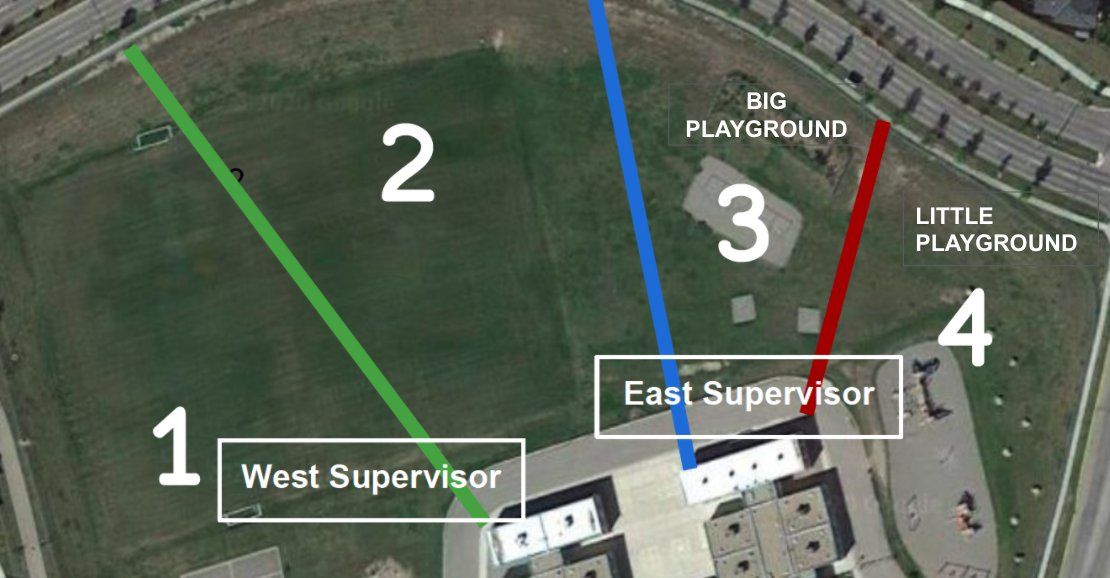
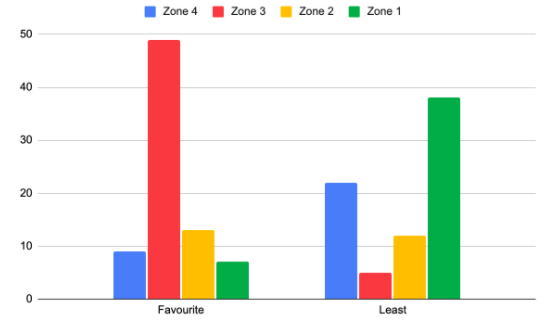
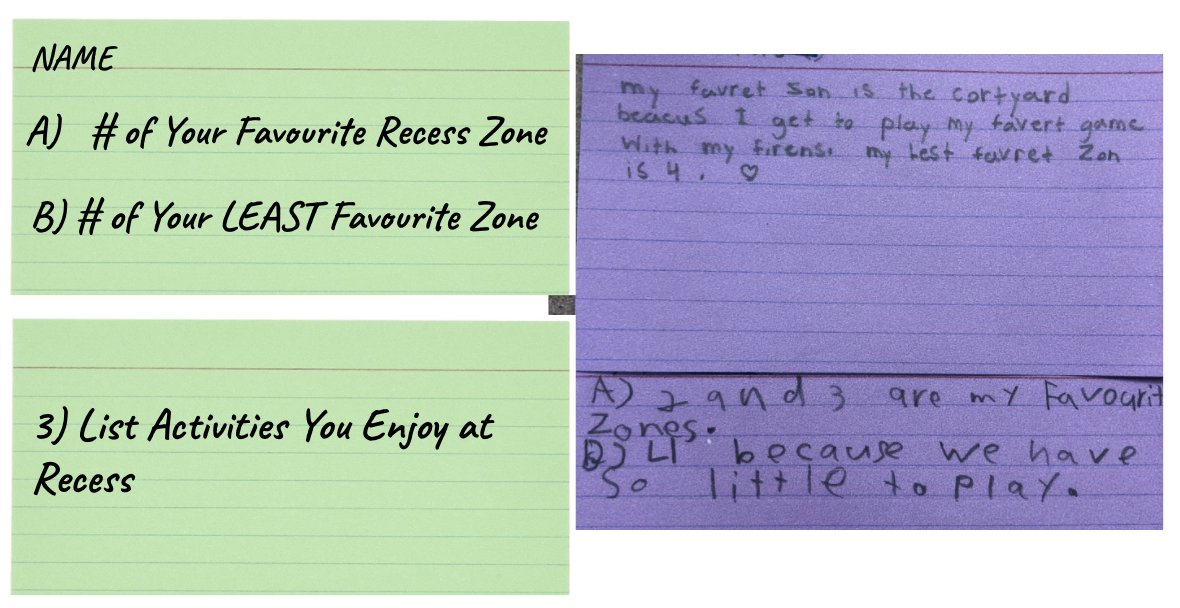
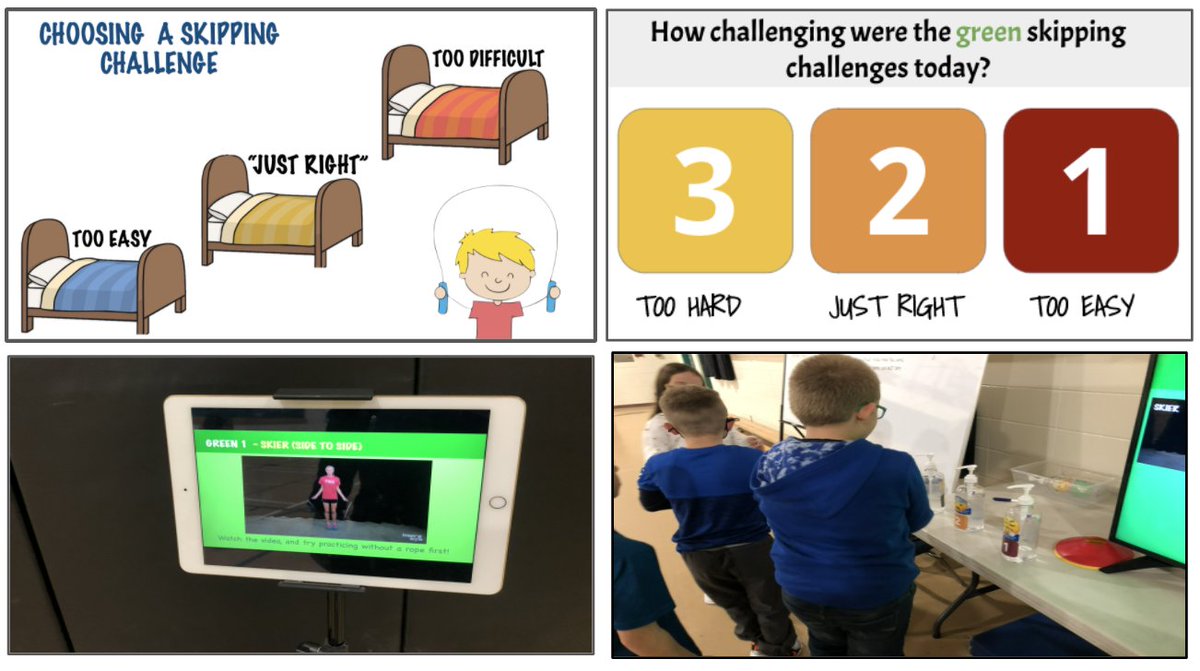
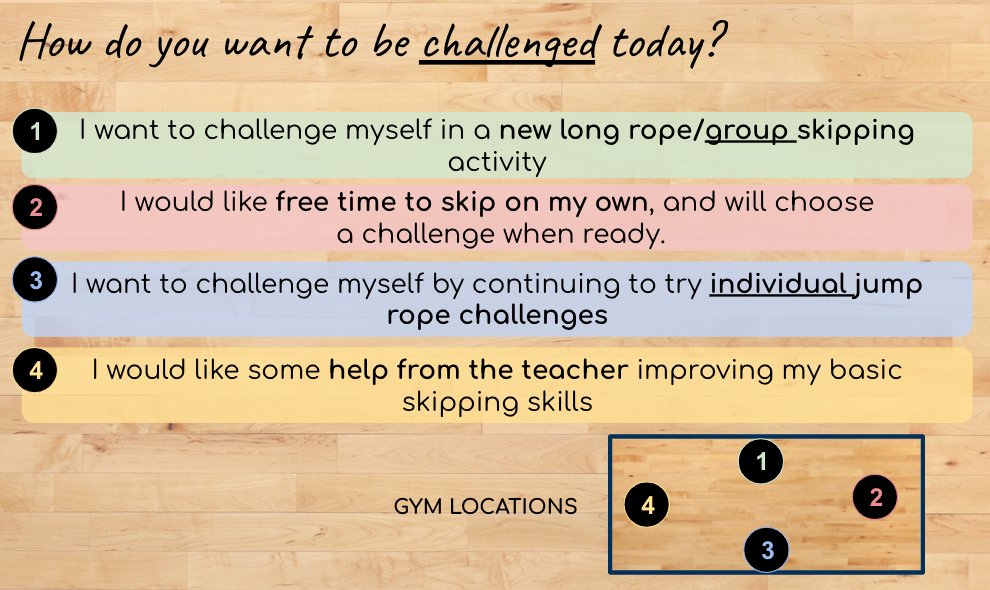
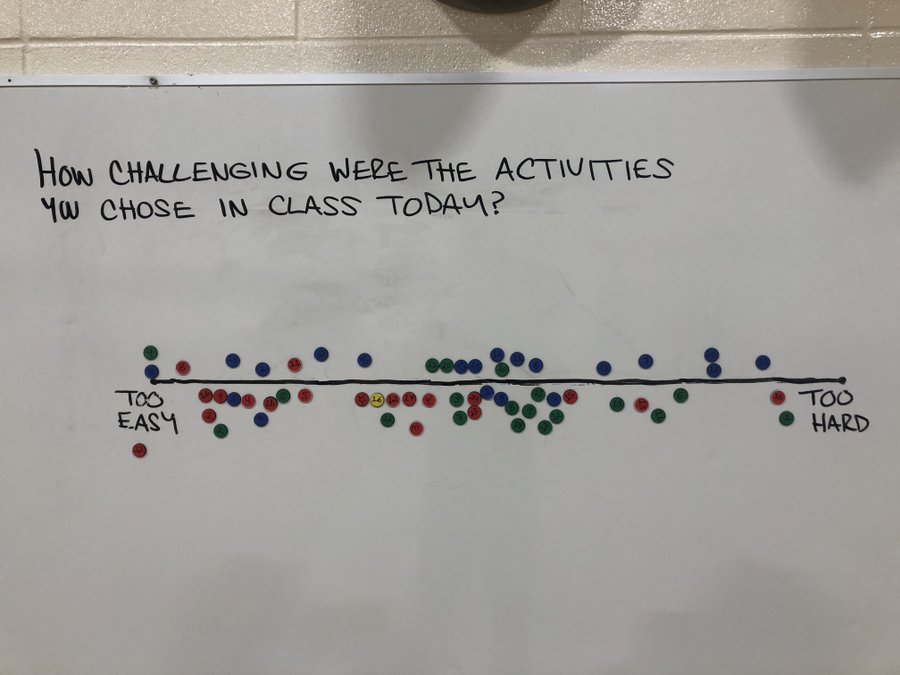
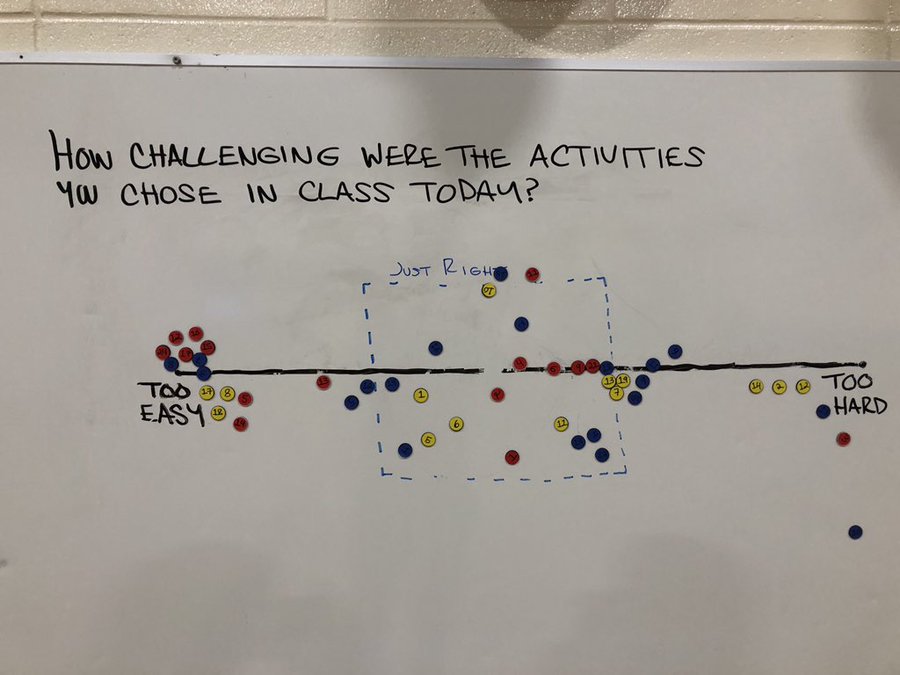
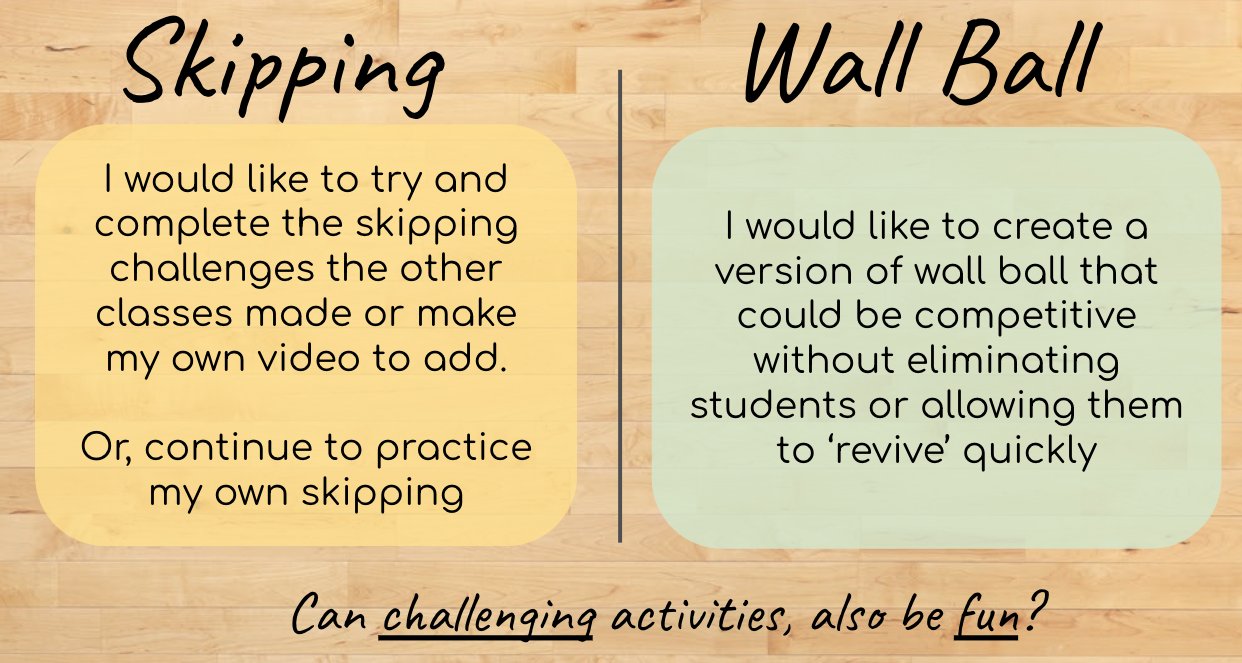
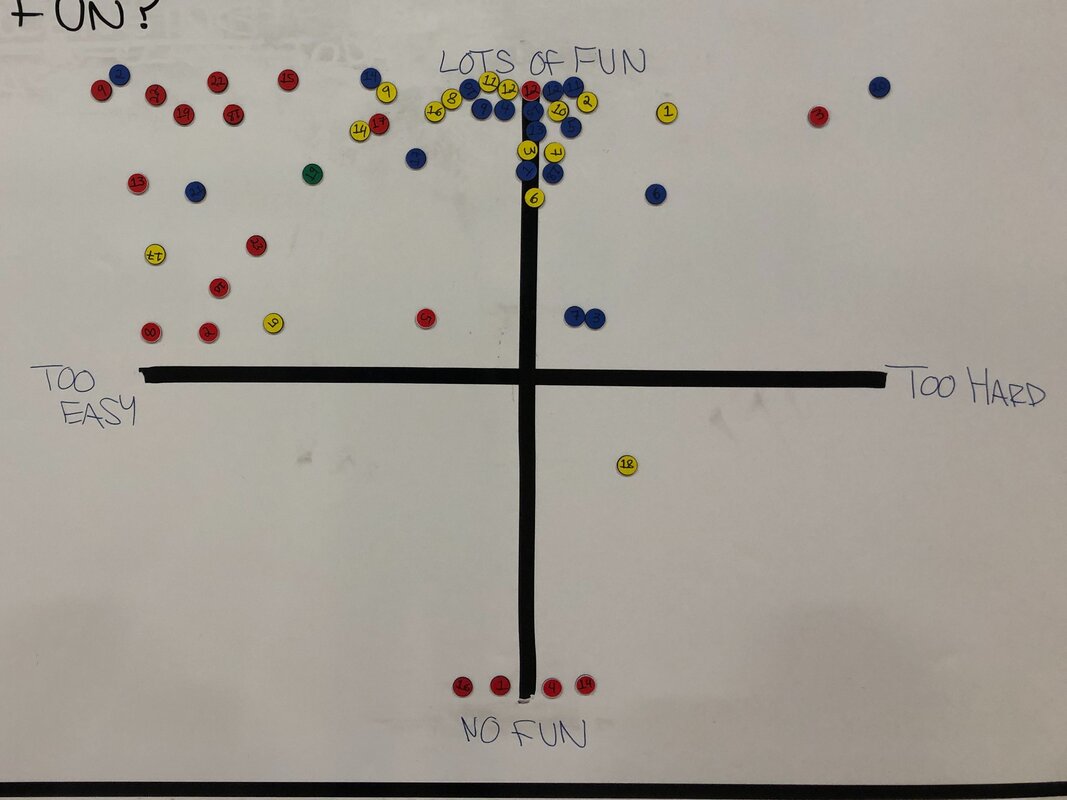
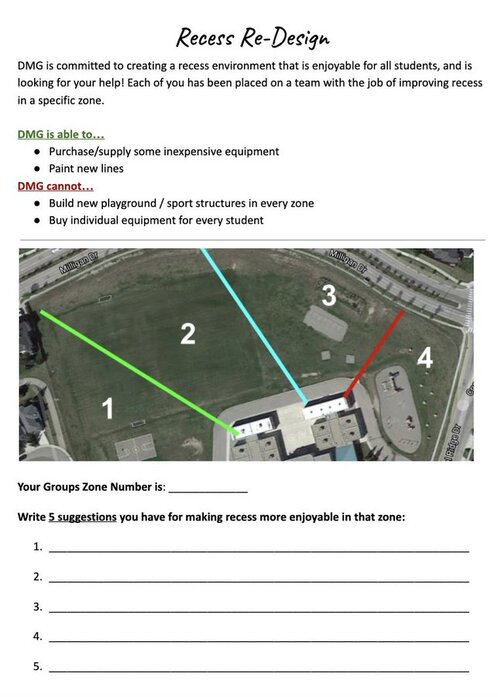
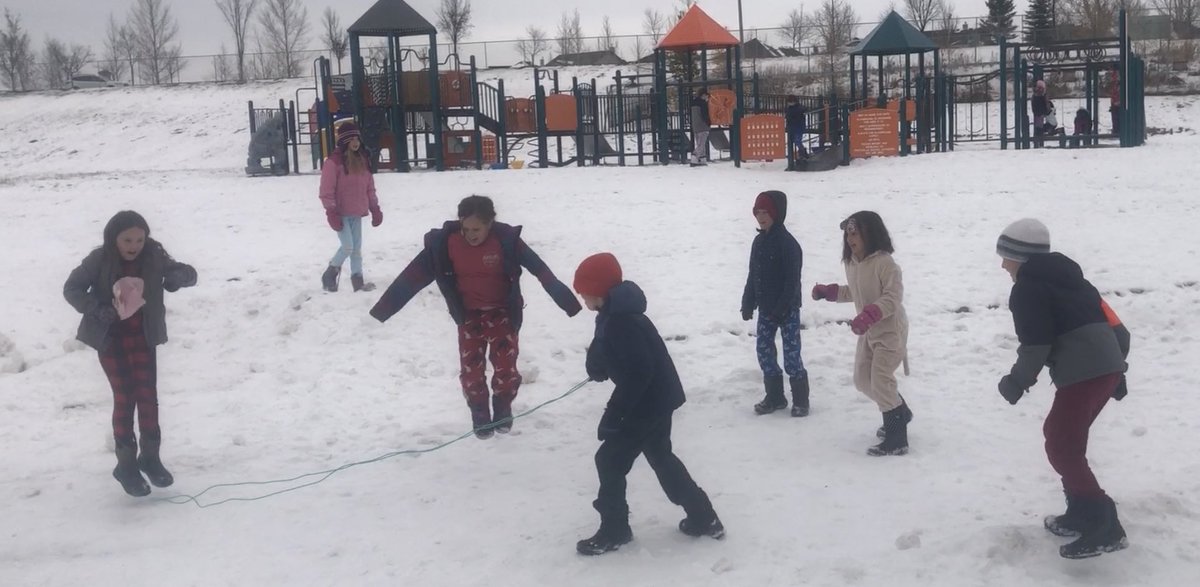
 RSS Feed
RSS Feed
